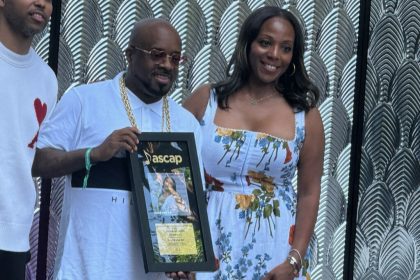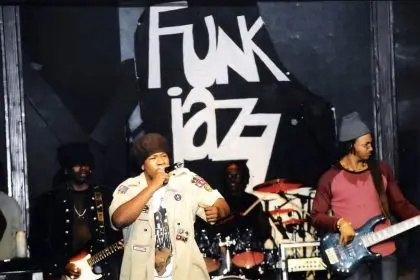Cultural recognition takes center stage as Miami’s Liberty City prepares to immortalize its musical heritage through an unprecedented street renaming project. The initiative focuses on celebrating homegrown hip-hop innovators who shaped not just the local scene but influenced American music culture at large.
At the forefront stands Luther Campbell, widely known as Uncle Luke, whose impact transcends the boundaries of conventional entertainment. The former 2 Live Crew frontman will see NW 70th Street transformed into “It’s Your Birthday” Street, named after his 1994 release that became a staple at celebrations across the country.
From controversy to commemoration
The journey from controversial artist to community icon represents a profound shift in how society views Campbell’s contributions. In the late 1980s and throughout the 1990s, his group pioneered Miami Bass (often called Booty Bass), a subgenre characterized by pulsating rhythms and explicit content that challenged mainstream sensibilities.
This street dedication acknowledges Campbell’s artistic innovations and his significant legal battles that reshaped entertainment law. His willingness to fight censorship through the court system ultimately led to landmark decisions that protected artistic expression and established important precedents regarding sampling practices in hip-hop production.
Beyond entertainment, Campbell evolved into a multifaceted community figure whose influence spans youth sports coaching, journalism through his Miami New Times column, and political activism that included a mayoral campaign. This comprehensive impact made him an ideal candidate for permanent recognition within the neighborhood that shaped his worldview.
A broader cultural tapestry
The initiative extends beyond just Campbell, encompassing a 10-block stretch of Liberty City streets that will honor multiple influential Black artists with Miami roots. County Commissioner Keon Hardemon championed the proposal, which passed in March, creating a cultural corridor that celebrates local musical achievements.
Among the honorees, soul legend Betty Wright will have “No Pain, No Gain” Street named after her classic hit, while Trick Daddy’s commitment to community will be reflected in “Trick Love The Kids Street.” These selections represent different eras and genres within Black music, creating a multigenerational tribute to artistic excellence.
Historical context matters when considering the significance of this project. Liberty City has faced numerous socioeconomic challenges throughout its history, including periods of disinvestment and negative portrayals in media. These street renamings serve as a counternarrative, highlighting the creativity, resilience and cultural contributions that flourished despite structural obstacles.
Inspiration for future generations
The impact of seeing familiar streets bear the names of successful artists from one’s own neighborhood cannot be overstated. For young residents of Liberty City, these renamed streets provide tangible evidence that achievement is possible regardless of starting circumstances.
Campbell emphasized this aspirational quality when discussing the project, noting that the recognition would serve as a historical marker even after he’s gone. The renamed streets will prompt questions from future residents unfamiliar with his story, potentially leading them to discover his contributions to free speech advocacy and cultural innovation.
Educational opportunities emerge naturally from this initiative. Schools in the area can incorporate lessons about these artists into their curriculum, helping students understand the artistic and business dimensions of the music industry while appreciating the legal and social challenges these pioneers overcame.
Process and celebration
The careful selection process for these street names involved community input alongside administrative procedures. Considerations included not just musical impact but also the lasting positive associations each artist maintained with the neighborhood and their continued commitment to local improvement.
The official unveiling ceremony for Luther Campbell Way, scheduled for May 3 at 10 a.m., will transform a routine municipal function into a community celebration. Expected to draw residents of all ages, the event symbolizes how cultural recognition can unite diverse constituents around shared pride in local achievement.
Practical implementation of the street renaming requires coordination between multiple departments, including transportation, emergency services, and postal authorities. This behind-the-scenes work ensures that while the symbolic value of the new names is celebrated, the functional aspects of navigation and service delivery remain uncompromised.
Legacy preservation in changing neighborhoods
As urban neighborhoods evolve through development and demographic shifts, cultural memory becomes increasingly valuable. These street renamings serve as permanent markers of Liberty City’s contribution to American musical history, providing continuity even as the physical landscape changes.
The timing coincides with growing appreciation for hip-hop as a legitimate art form worthy of academic study and institutional recognition. Museums and universities increasingly document hip-hop history, and Liberty City’s street renaming project aligns with this broader cultural shift toward acknowledging the genre’s significance.
Beyond symbolism, the initiative creates potential economic benefits through cultural tourism. Music enthusiasts may visit these streets, patronizing local businesses and generating interest in the neighborhood’s history. This represents a form of community development that builds on authentic cultural assets rather than imposed external models.
Broader implications for cultural recognition
Miami’s approach to honoring its musical heritage could serve as a template for other cities with rich but underrecognized cultural histories. The project demonstrates how municipal governments can use existing infrastructure to celebrate local achievement without requiring massive financial investment.
The initiative also raises important questions about who decides which cultural contributions deserve public recognition. By elevating artists sometimes considered controversial, Liberty City acknowledges that artistic value can coexist with content that challenges conventional norms.
Campbell’s evolution from censored artist to celebrated cultural figure reflects broader societal changes in how we evaluate artistic merit and freedom of expression. The street renaming serves as a milestone in this ongoing conversation about art, community standards, and the protection of creative freedom.
As Liberty City prepares to unveil these transformed streets, the project stands as both celebration and statement—acknowledging the past while inspiring future generations to recognize their own potential to create lasting cultural impact from within their communities.














